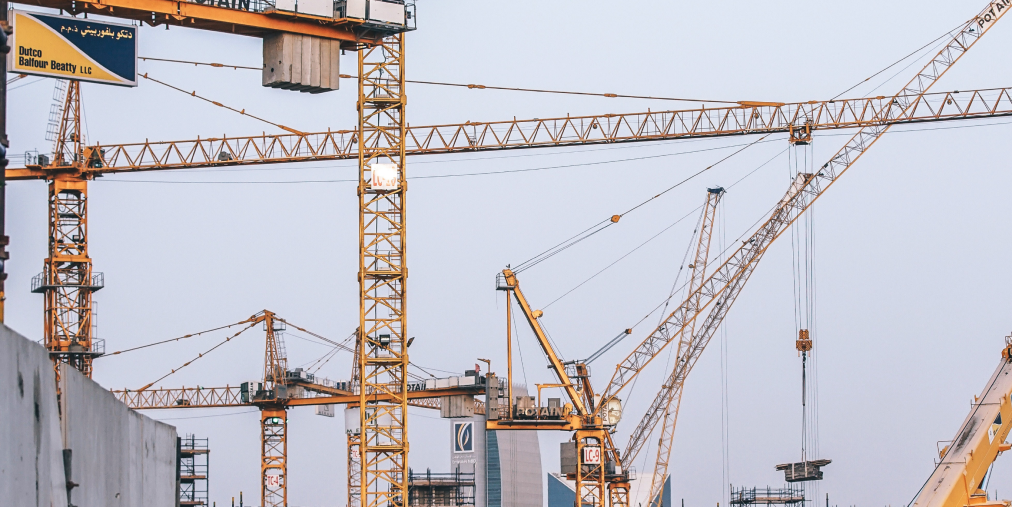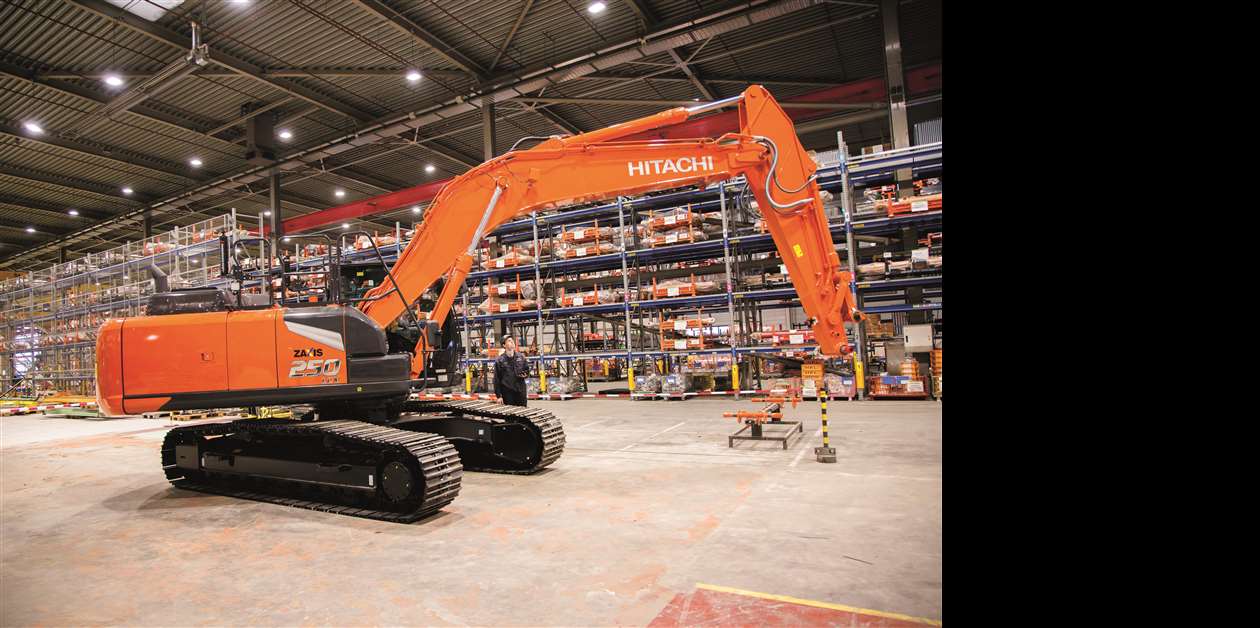Scissor Lift Rental in Tuscaloosa AL: Safe and Reliable Raising Solutions
Scissor Lift Rental in Tuscaloosa AL: Safe and Reliable Raising Solutions
Blog Article
Checking Out the Financial Conveniences of Renting Building And Construction Equipment Contrasted to Owning It Long-Term
The decision in between renting out and having construction tools is crucial for financial management in the sector. Leasing offers prompt expense savings and functional versatility, allowing firms to designate resources more successfully. Comprehending these subtleties is crucial, specifically when thinking about just how they line up with specific task requirements and economic methods.

Cost Contrast: Leasing Vs. Having
When assessing the financial implications of possessing versus leasing construction equipment, a comprehensive cost contrast is crucial for making educated choices. The choice between having and leasing can considerably impact a company's lower line, and recognizing the linked prices is critical.
Renting out building and construction devices usually entails reduced ahead of time prices, enabling businesses to assign capital to various other functional demands. Rental agreements typically consist of versatile terms, enabling business to access advanced equipment without long-lasting commitments. This adaptability can be particularly useful for short-term tasks or fluctuating workloads. Nonetheless, rental expenses can build up in time, potentially exceeding the expense of possession if devices is needed for an extended period.
Conversely, having building and construction equipment requires a considerable preliminary financial investment, along with ongoing costs such as financing, insurance, and devaluation. While ownership can result in long-lasting financial savings, it also locks up funding and may not provide the very same level of adaptability as leasing. In addition, having tools necessitates a commitment to its usage, which might not constantly straighten with task needs.
Ultimately, the decision to lease or possess must be based upon a comprehensive analysis of details project demands, monetary capacity, and long-term calculated goals.

Upkeep Expenditures and Responsibilities
The option in between renting out and owning construction devices not only entails financial factors to consider however also includes continuous maintenance expenses and responsibilities. Owning tools calls for a significant dedication to its maintenance, which consists of routine evaluations, repair work, and prospective upgrades. These duties can promptly gather, bring about unforeseen expenses that can stress a spending plan.
In contrast, when leasing devices, upkeep is usually the responsibility of the rental firm. This plan allows contractors to stay clear of the financial worry related to wear and tear, along with the logistical difficulties of organizing repair services. Rental agreements often consist of provisions for maintenance, meaning that specialists can concentrate on finishing projects instead of bothering with devices problem.
Moreover, the varied series of devices readily available for lease makes it possible for companies to select the most up to date designs with advanced innovation, which can boost efficiency and efficiency - scissor lift rental in Tuscaloosa Al. By going with rentals, organizations can avoid the long-lasting responsibility of equipment depreciation and the connected upkeep headaches. Eventually, reviewing maintenance expenditures and obligations is crucial for making a notified choice about whether to have or rent building and construction equipment, dramatically impacting general project expenses and functional performance

Depreciation Influence On Possession

A substantial element to think about in the choice to possess construction equipment is the effect of devaluation on general possession prices. Depreciation represents the official statement decline in worth of the tools over time, influenced by aspects such as use, wear and tear, and improvements in modern technology. As equipment ages, its market price diminishes, which can considerably impact the proprietor's economic position when it comes time to trade the equipment or offer.
For building and construction firms, this devaluation can equate to considerable losses if the devices is not used to its max capacity or if it lapses. Owners must make up devaluation in their monetary projections, which can lead to greater overall costs contrasted to renting. Additionally, the tax obligation ramifications of depreciation can be complex; while it might supply some tax advantages, these are commonly offset by the reality of lowered resale value.
Inevitably, the concern of depreciation stresses the significance of comprehending the long-term economic commitment involved in possessing building and construction devices. Business should very carefully assess exactly how frequently they will utilize the equipment and the possible economic influence of depreciation to make an enlightened decision regarding possession versus renting.
Monetary Adaptability of Renting
Leasing building and construction equipment provides substantial economic flexibility, enabling firms to allocate resources a lot more successfully. This flexibility is particularly vital in a sector characterized by varying job needs and differing workloads. By opting to lease, services can stay clear of the substantial resources investment needed for acquiring tools, preserving cash flow for other operational needs.
Additionally, renting equipment enables companies to tailor their equipment choices to particular job demands without the long-lasting dedication linked with possession. This means that companies can quickly scale their devices stock up or down based upon present and expected project needs. As a result, this versatility lowers the threat of over-investment in machinery that may end up being underutilized or outdated with time.
An additional financial advantage of renting is the capacity for tax benefits. Rental payments are frequently considered overhead, backhoe attachments for tractors allowing for immediate tax obligation reductions, unlike depreciation on owned tools, which is topped several years. scissor lift rental in Tuscaloosa Al. This immediate expenditure recognition can even more improve a firm's cash money placement
Long-Term Job Factors To Consider
When reviewing the long-term demands of a building organization, the choice between renting out and having devices comes to be much more complicated. For tasks with extended timelines, purchasing devices may seem advantageous due to the capacity for reduced overall expenses.
The building and construction sector is progressing quickly, with new devices offering enhanced efficiency and safety attributes. This adaptability is specifically valuable for organizations that handle diverse tasks calling for various types of equipment.
Moreover, financial security plays a crucial duty. Having equipment often requires significant capital expense and depreciation concerns, while renting out enables for even more predictable budgeting and capital. Ultimately, the selection between renting out and having should be aligned with the calculated goals of the construction organization, thinking about both present and anticipated job demands.
Verdict
Finally, leasing building and construction devices offers significant monetary advantages over lasting ownership. The decreased ahead of time costs, elimination of maintenance responsibilities, and evasion of depreciation add here are the findings to enhanced capital and economic flexibility. scissor lift rental in Tuscaloosa Al. Moreover, rental repayments serve as prompt tax reductions, further benefiting professionals. Ultimately, the choice to rent instead of very own aligns with the dynamic nature of building and construction jobs, permitting for adaptability and accessibility to the most up to date equipment without the monetary burdens connected with possession.
As tools ages, its market value decreases, which can dramatically affect the proprietor's monetary setting when it comes time to market or trade the tools.
Renting out building and construction tools supplies substantial economic adaptability, permitting business to designate resources much more efficiently.Additionally, renting equipment makes it possible for firms to customize their equipment choices to specific project needs without the lasting commitment associated with ownership.In verdict, renting out building and construction devices provides substantial monetary advantages over lasting possession. Inevitably, the choice to rent out instead than very own aligns with the vibrant nature of building projects, allowing for adaptability and access to the latest equipment without the monetary burdens linked with ownership.
Report this page